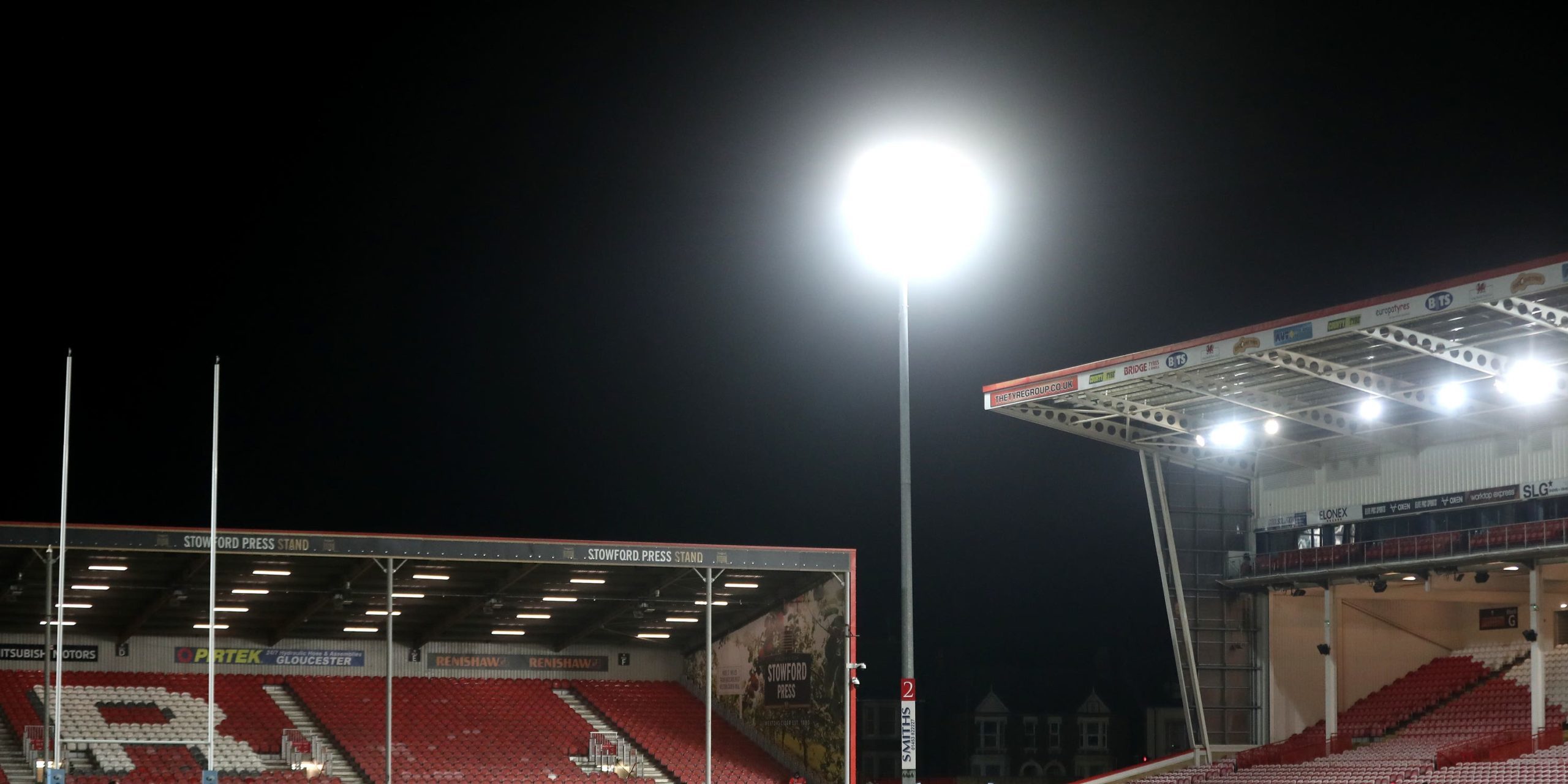Gloucester CEO: Don’t put up £5m salary cap

Gloucester’s Kingsholm ground had been due to stage the fixture (David Davies/PA)
Gloucester CEO Lance Bradley has voiced his frustration at the decision to increase the Premiership salary cap back up to £6.4 million from the 2024/25 season onwards.
The salary cap was reduced to £5m last season because of the damaging impact of Covid-19 on club finances, producing what Bradley feels was the most competitive league in years.
However, the four shareholding clubs needed to bring about a change voted in favour of the U-turn at a recent PRL board meeting. Bradley feels that will lead to clubs spending money they haven’t got and could result in a league of the haves and have nots.
“The salary cap did go down during Covid, and the thing that is a bit disappointing was that it has gone back again for the 2024/25 season, to £6.4 million,” Bradley said.
“The argument is to compete in Europe, and I know that is one of the things we want to do, but it is only one of the things.
“We are trying to have a competitive league and if you get that it becomes much more attractive to fans, to broadcasters, sponsors…to everything else.
“Last season when the salary cap was £5 million, we probably had the best league for a long time. With two weeks to go anyone in the top eight, maybe 10, could have finished in the top four, it was absolutely remarkable.
“The single biggest expense of any Premiership rugby club is the first team costs and that is linked to salary cap,” added Bradley, the former managing director of Mitsubishi Motors.
“My background is in the automotive industry. I was 30 years in the car industry, and one of the fairly basic business tenets is that you link your expenditure to your income and, at the moment, that isn’t the case in rugby. That is something I would like to see moving forward. It is hard to resist otherwise.”
While disagreeing with the impending salary cap increase, Bradley says the financial picture of the league is not as bleak as a recent newspaper report suggested.
“It was a very basic misinterpretation of facts – confusing deferred tax with owed tax is a pretty schoolboy error so it was highly misleading,” he said.
“It said the total debt (of Premiership clubs) is £500 million and I don’t believe it is anywhere near that much. I can only speak on behalf of Gloucester but the figures they quoted for us were wildly inaccurate. We don’t owe any tax and we never have during the whole of lockdown, we’ve always paid it on time.
Match action – starts Page 8
Gloucester CEO: Don’t increase £5m salary cap
“The figure they quoted for us I think was £27 million and actually it is about £11 million. If you take that as indicative (of the whole league), the total debt is not £500 million, it is probably £150 million.
“We did take a loan through DCMS of £11.2 million because Covid did hit us hard which we’ll pay back over quite an extended period. But most businesses function with a level of debt, the key thing is how you can service that debt and what it looks like compared to your other assets – cash in the bank and what have you.
“We have got cash in the bank and assets that are worth significantly more than the debt is, including the stadium, that we own outright. I am not saying everything in the garden is rosy and there isn’t anything that could be better but we are in a solid financial situation.
“We do have a five-year financial plan that includes how we are going to pay back the DCMS loan and we are very comfortable with that plan.”
Bradley has revealed that despite the cost of living crisis Gloucester’s season ticket sales are actually up by 9 per cent.
However, Gloucester’s crowd of 11,124 for the visit of Wasps was disappointing, even with some tickets selling for £15, and that was reflected pretty much across the board. The overall attendance for the opening round was down 14 per cent on the previous year with an average of 9,757 (58,542) compared with 11,301 (67,807). It is the first time attendances for a regular round of Premiership matches has failed to top 60,000 since the end of January – atime when all the focus is on the Six Nations.
Bradley believes more needs to be done for the Premiership season to start with a bang instead of a whimper.
“From our own point of view, and it is very easy to find excuses why crowds are down, but we always do struggle to sell on a Sunday,” he said.
“We actually had a plan this year as a league to be more positive in promoting the start of the season. It was something that Simon Massie-Taylor (PRL CEO) was very keen on when he came in at the beginning of the year.
“It is a kind of the accepted norm that the start of the season is always quiet and that’s always frustrated me because I love the start of the season, even before I worked here, I couldn’t wait for the season to start after two months of no rugby.
“So we were trying to get that enthusiasm and there was a bit of activity around it and all the rest of it and there were probably things we could have done better with that but I think the negativity around the news around Worcester made it challenging and the cost of living crisis had an impact.”